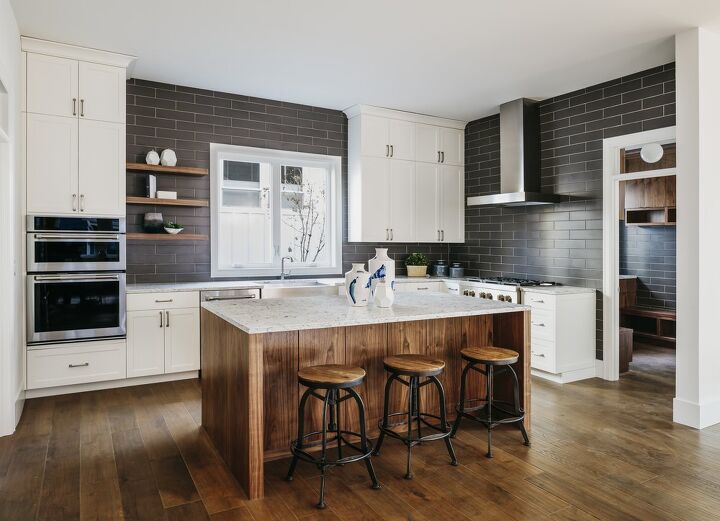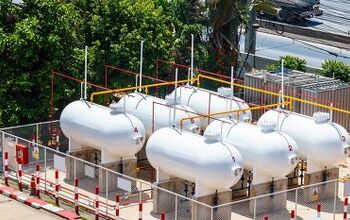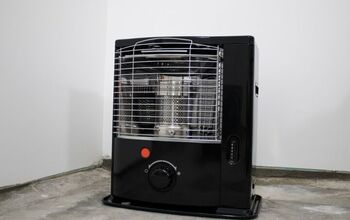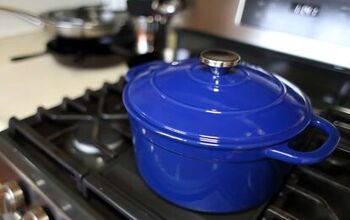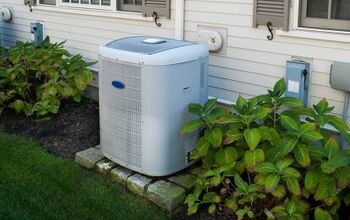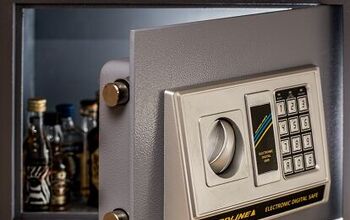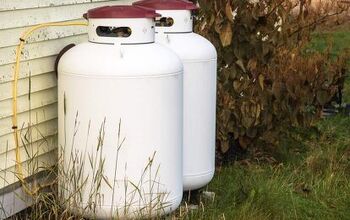Gas Vs. Electric Wall Oven: What Are The Major Differences?

Upgrading your kitchen appliances or deciding on appliances for a new home involves a lot of decisions. One of those is the type of wall oven you select for your kitchen. Many times, this preference is personal and depends on cooking styles and needs. Often other considerations weigh on the decision. The question of gas or electricity for your wall oven is one of the most important.
What kind of wall oven is preferable? That debate rages on with chefs and cooks. Gas offers advantages over electricity in some areas while electricity gains the upper hand under certain circumstances. Cooking styles and preferences figure into the decision as much as the technical details. Often, there is no decision because of the utility services available in your home.
There are advantages and disadvantages to both gas and electric wall ovens. There is also a wide range of styles with many different options and features to consider. Many homeowners are surprised at how complicated the decision of gas or electric can become until they face it. Understanding the pros and cons of both types of wall ovens is the best preparation for making this decision.
Do You Need Appliance Installation or Replacement?
Get free, zero-commitment quotes from pro contractors near you.

Do You Really Have an Option?
The very first consideration is whether you have an option between gas and electric power for your wall oven upgrade. The age of your home, the restrictions on your subdivision, and gas or electric service availability comes into question.
Is there Gas Service Available?
The very first consideration is determining if you have natural gas delivery service to your home. Many new subdivisions and some older subdivisions do not have underground gas lines installed. There are several reasons for this.
- The developer of the sub-division decided to save money by only installing electric services and building all-electric homes.
- There is no natural gas service in the location of your home. Many rural parts of the U.S. don’t have underground natural gas delivery. The only option in these areas is to have an all-electric home or install a propane tank and piping to serve the home.
- In some areas, the cost of electricity is so low that even natural gas is a costlier option for heating and cooking. The economics of the utility service makes natural gas a financial decision.
You should have no trouble determining if your home has natural gas service. Some of your appliances, such as home heating and water heating, may already be gas. If your home is all-electric, a call to the natural gas provider can confirm if natural gas is available in your neighborhood.
Why Gas?
Opinions about which is better, gas or electric, for a wall oven are many and varied. Looking at gas ovens, you first must consider the different styles of the gas oven from which you can choose.
Budget Style Gas Wall Ovens
Typically, budget-style gas wall ovens are the least expensive of all wall oven options. The selection of budget gas wall ovens is often limited, even among different manufacturers. The usual features you get with a budget gas wall over include:
- Electronic touch controls for temperature and, in some cases, cooking time
- Some budget gas wall ovens include a self-cleaning feature
- The cost of these budget appliances ranges between $800 and $1100. The upper ranges of price often include stainless steel for those who prefer that finish.
Budget gas wall ovens offer a good solution for homeowners upgrading from older, less efficient gas or electric wall ovens. New gas appliances are more fuel-efficient than most older units meaning budget savings over the appliance’s lifetime.
Standard Gas Wall Ovens
If you build a new home and specify a gas wall oven in your new kitchen, a standard quality gas wall oven is probably what the builder will install. These standard units are a step above the budget variety and offer some additional features and options.
- Almost all standard-grade gas wall ovens offer self-cleaning modes.
- Most standard gas wall ovens have a lower broiler unit. The broiler unit adds versatility and more cooking modes than a budget gas oven with no broiler.
- Electronic touch controls for cooking temperature, pre-heat, and broiling are included on these standard units. Many also include timers for cooking and delayed starts.
- You can expect to pay between $300 and $500 more for a standard unit over a budget unit. Typically, the price range falls between $1300 and $1500.
Most homeowners who want gas appliances in their kitchen find the standard gas wall ovens offer all the features for their uses. Standard gas wall ovens are available in various finishes to match any kitchen, including stainless steel.
Convection Style Gas Wall Ovens
Convection ovens offer serious cooks many additional options. Convection ovens typically cook faster and leave food moister than standard ovens and electric ovens. However, there are some downsides to installing a gas convection wall oven.
- Finding a gas convection oven is challenging. Most big-box appliance stores don’t stock or even catalog gas convection ovens.
- Builders can often offer gas convection ovens but consider them luxury options and charge well above the price difference. The usual reasons for higher prices are the higher cost of the units, the problems with special orders, and the requirements for special installation requirements.
- In general, you can expect a gas convection wall oven to cost at least $3500 and more depending on the features and finish you specify.
Adding a convection gas oven to a kitchen is usually because someone in the household has a passion for cooking. Gas convection ovens certainly offer more cooking options than a standard oven. The problem is the high cost of purchasing and installing a gas convection oven.
Going Electric – The More Popular Option
Electric appliances in the kitchen are the more popular option in the United States. There are several reasons for this popularity.
- In some cases, builders opt to build all-electric sub-divisions and don’t install natural gas delivery options in the neighborhoods.
- The home’s original construction may not have included plumbing for natural gas to the kitchen of the home. The natural gas utility may only service the HVAC system and the water heating system.
- In some rural areas, underground natural gas delivery systems are non-existent. Homes may have propane or butane tanks that provide limited gas resources for heating purposes.
You may be limited only to electric appliances in your kitchen for one or more of these reasons. Because of the popularity of electric appliances, there are far more options and features available.
Budget Electric Wall Ovens
If your budget is constrained, you may find that a budget electric wall oven is your best choice. Typically, these budget units include the basic features and functions including:
- Electronic controls for temperature. Some units may include a timer.
- Budget ovens are available in a range of colors and finishes to fit your kitchen décor
- Typically, budget electric wall ovens cost between $700 and $1000. If you opt for a stainless steel finish, you can expect to pay between $100 and $200 more.
Budget electric wall ovens are great choices for anyone on a budget who wants to upgrade the look and feel of their kitchen. Newer budget electric wall ovens are more economical to operate than older ovens and usually offer a few more options and features.
Standard Electric Wall Ovens
As with gas wall ovens, standard electric wall ovens are what builders typically install in new homes. These standard electric wall ovens offer a wider range of features and options than the budget models and, for most homeowners, bring everything needed to the kitchen. You can expect features such as:
- The largest difference between standard ovens and budget ovens is the self-cleaning feature. Most homeowners see the value in the extra cost to have the self-cleaning function in an oven they use regularly.
- Typically, standard grade electric ovens include electronic touchpad controls with temperature and feature settings, cooking timers, delayed start timers, and other optional functions.
- You should budget in the range of $1000 to $1300 for a standard electric wall oven. Additional features may add cost to the unit.
Standard electric wall ovens represent most wall ovens installed in kitchen remodels and new construction. If you are building a new home, more than likely, your builder will install an electric wall oven in this classification.
Double the Pleasure, Double the Fun
Many homeowners who bake regularly appreciate a double electric wall mount oven in the kitchen. A double oven gives you more cooking capacity, among other benefits. You can usually upgrade your oven installation to a double oven variety between $1500 and $2100, depending on the options, features, and quality.
Electric Convection Wall Ovens
Convection ovens are well known for their quick cooking. Chefs and cooks in commercial kitchens have long been familiar with these advantages. More homeowners want to have the same advantages in their home kitchen. Adding a convection wall oven to your kitchen plans will cost between $1400 and $2200.
Do You Need Appliance Installation or Replacement?
Get free, zero-commitment quotes from pro contractors near you.

So, Which is Better?
Deciding which is better is a question that only you can answer. Your expectations and needs are the largest factors in your decision, providing your home has the necessary utility services to support your choice. Ultimately, the decision on gas or electric wall ovens is a combination of possibilities, availabilities, and desirability.

Dennis is a retired firefighter with an extensive background in construction, home improvement, and remodeling. He worked in the trades part-time while serving as an active firefighter. On his retirement, he started a remodeling and home repair business, which he ran for several years.
More by Dennis Howard



